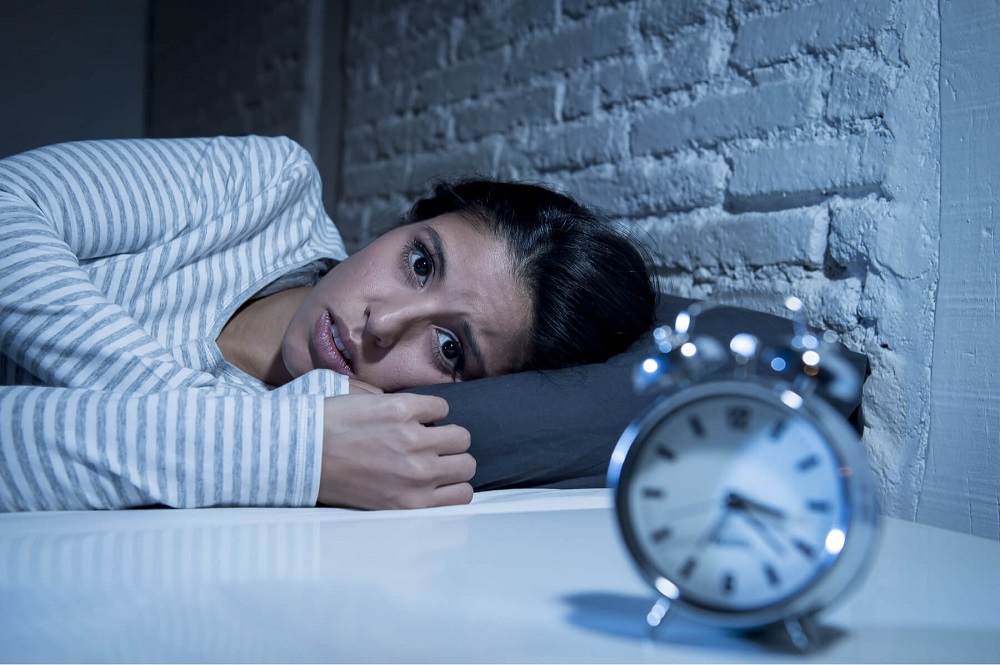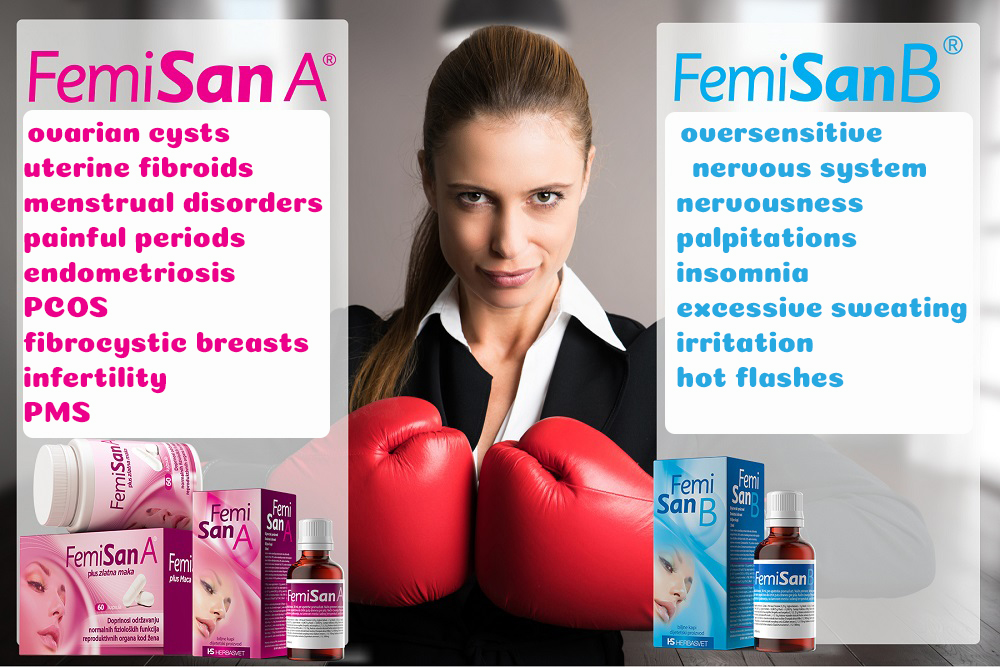The luteal phase of the menstrual cycle, from the end of ovulation until the start of menstruation, is usually the time when PMS storms onto the stage with its exuberant symptoms. Changes in hormone levels, especially oestrogen and progesterone, affect the entire body: from appetite, through digestion, energy, all the way to our mind. PMS and anxiety often go together.
Premenstrual symptoms affect as many as 85 percent of women, but some suffer from pronounced nervousness, excessive worry, tension and anxiety. Those who normally suffer from anxiety attacks will notice that they intensify significantly during PMS, but even women who normally do not have them can feel mild or moderate mood changes. Distinct and extreme symptoms can be a sign of premenstrual dysphoric disorder.
PMS INFLUENCES THE QUALITY OF LIFE
Today we have medications for a number of serious diseases, but premenstrual conditions are still quite shrouded in mystery. What is certain is that they are caused by reproductive hormones – such as serotonin and dopamine – and their oscillations, which directly affect neurotransmitters in the brain and are related to mood. But it is not known why some women have pronounced or extreme PMS symptoms and some have mild or none. What is certain is that PMS greatly affects women’s quality of life – according to one study, over 60 percent of respondents felt that this syndrome disturbs their daily routine. Another study mentions angry outbursts as one of its main symptoms.
One study involving female students in Egypt found that PMS is extremely common among them, and that it is significantly associated with an increased body mass index, a sedentary lifestyle, exposure to tobacco smoke and an increased intake of coffee and fast food. That seems to be the very core of the problem.

PMS AND ANXIETY – UNHEALTHY LIFESTYLE
Today, an unhealthy lifestyle has simply been imposed on us, and it takes a lot of consciousness and strength to break away and put yourself and your health first. Insufficient movement, poor diet full of trans fats, additives, sugar, lack of sleep, being indoors too much and spending too little time in nature – all these are factors that affect the work of hormones.
If anxiety and depression constantly threaten our lives during those ten days before the period, they are very likely to stay with us and become even more drastic, during the onset of menopause. That is why it is important to do our best to control these symptoms in time. We can contribute a lot to reduce or minimise them by the choices we make in our life.
Fits of excessive and unreasonable worry and anxiety often lead to withdrawal into oneself, avoidance of people and social activities, insomnia and constant tension, so in addition to overstimulation of the nervous system, they can also affect general health – heart and blood vessels, digestive system, blood sugar level or cause psychosomatic diseases. If they are frequent and recur every month, it is not even necessary to dwell on explaining how much they threaten our quality of life.

PMS AND ANXIETY: WHAT IS THE SOLUTION?
How to deal with PMS-related anxiety? Although we feel a drop in energy during PMS, it is very important to force ourselves to move as much as possible. PMS symptoms are proven to be more pronounced in women who do not engage in physical activity. Aerobic exercises – walking, running, cycling, swimming or group exercises in the gym – can help a lot to reduce anxiety and the physical symptoms of PMS, which has been proven in studies. One study has even established that during eight weeks of regular aerobic exercise, symptoms can be significantly regulated, including the psychological ones.
Nutrition is very important. Studies have proven that the intensity of PMS is directly related to eating habits, while fruit, for example, eases its symptoms. That is why it is important to avoid alcohol, caffeine, fatty and processed foods, dough made from white flour, fried food and food containing additives, sweets and excessively salted food as much as possible. Even though our body craves chips, croissants, donuts and salami at that time, it is precisely these products that should be avoided, and more food rich in vitamins and minerals should be consumed, especially vitamin B6, calcium, magnesium and unsaturated fatty acids. Gamma linolenic acid is especially useful, and a bar of dark chocolate with a high percentage of cocoa will satisfy our need for sweets and provide the necessary magnesium, antioxidants and increase our focus and alertness.
During this period, it is important to get a good night’s sleep. Some studies have established a direct link between little sleep and premenstrual dysphoric syndrome. Eight hours of sleep will give us enough energy for the day, as well as allow the nervous system to relax and regenerate. It is also important always to go to bed at the same time and wake up at the same time.
It is also necessary to find relaxation techniques that work for us, whether it is an Eastern meditation technique, guided meditation, reading, singing, knitting or doing puzzles. One study involving female students in Iran found that relaxation techniques significantly reduce PMS symptoms and alleviate psychological problems such as depression, feelings of despair, anxiety, tension, restlessness, emotional instability, anger, agitation, inability to concentrate, fatigue, changes in appetite and sleep disorders. Whatever relaxes us is good. It is wise to create a reminder in advance, in the form of a list of things that we could do, because when the time of crisis strikes it is unlikely that we will remember anything coherent.

NATURAL RELIEF FOR SYMPTOMS
And finally, it is important to know that we can also turn to nature for help. Medicinal plants have helped women cope with menstrual cycle disorders for centuries and the same ones today help a lot deal with PMS symptoms: yarrow, lady’s mantle, marigold, herb robert, raspberry leaf, shepherd’s purse… All these are plants that contribute to a good hormonal balance and are ingredients used in a preparation that is a woman’s best friend in the reproductive period: Femisan A. This completely natural preparation comes in the form of drops and capsules and is very easy to use and completely safe. Mistletoe, lemon balm, valerian, marigold and yarrow come to the rescue as part of Femisan B when the symptoms of menopause start. Femisan B can also be used outside menopause, during PMS, alone or in combination with Femisan A, for anxiety attacks, depression, insomnia and any nervous system overstimulation.
With Femisan A and Femisan B, we can turn those ten days of unnecessary worries into carefree and cheerful days… and we will feel that the whole world is ours.

